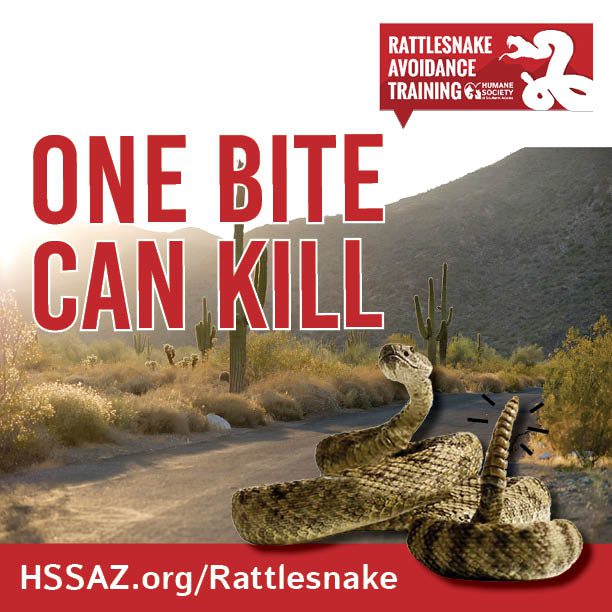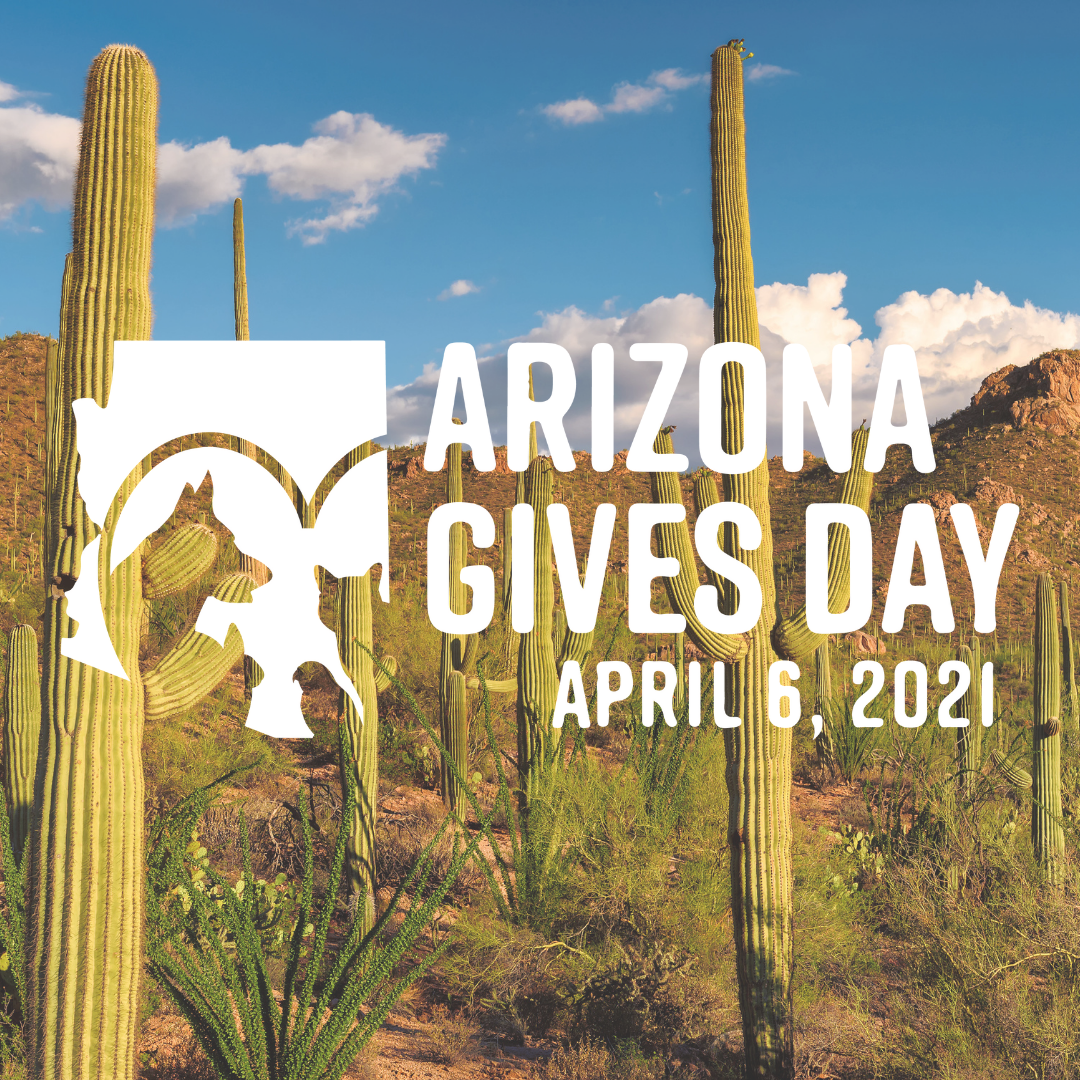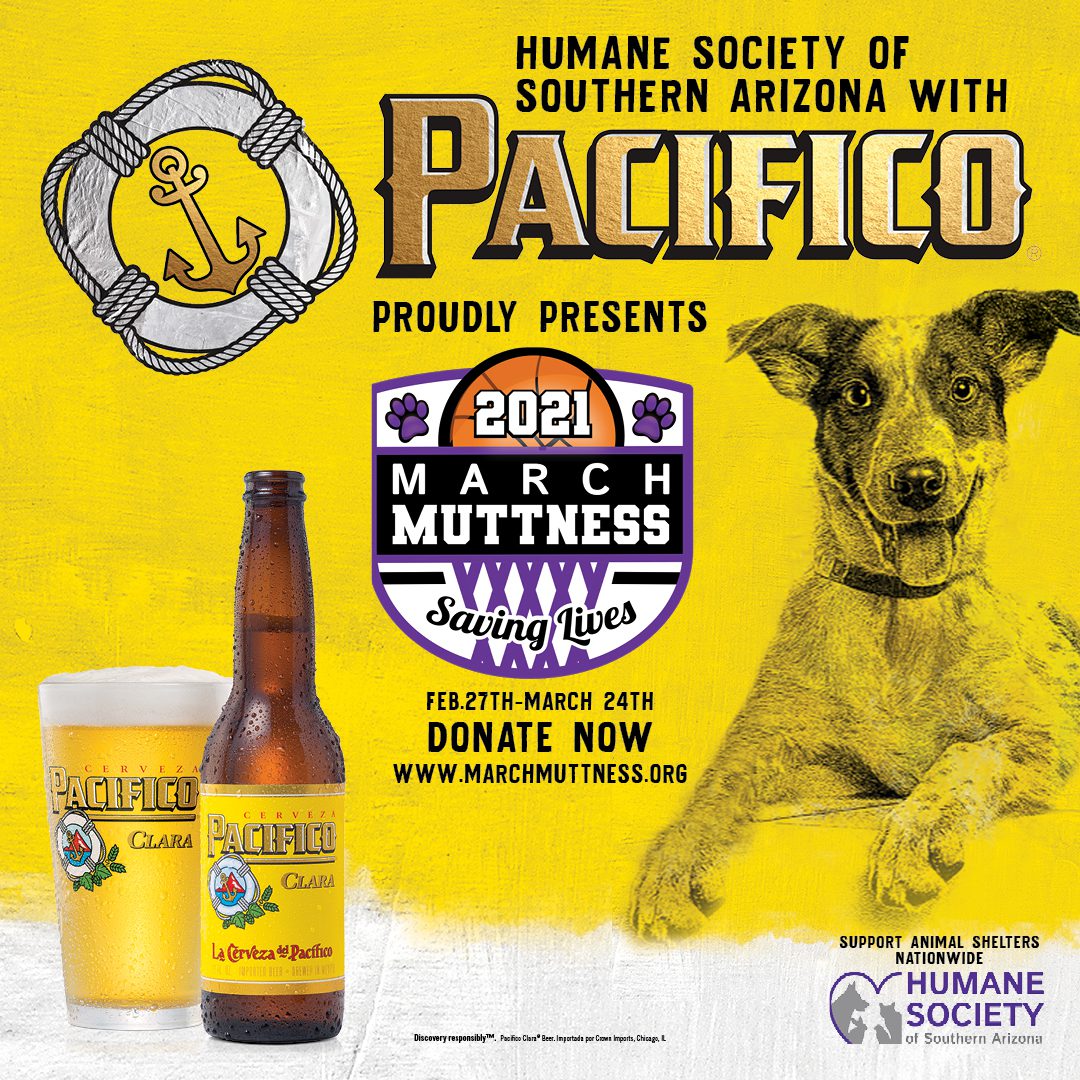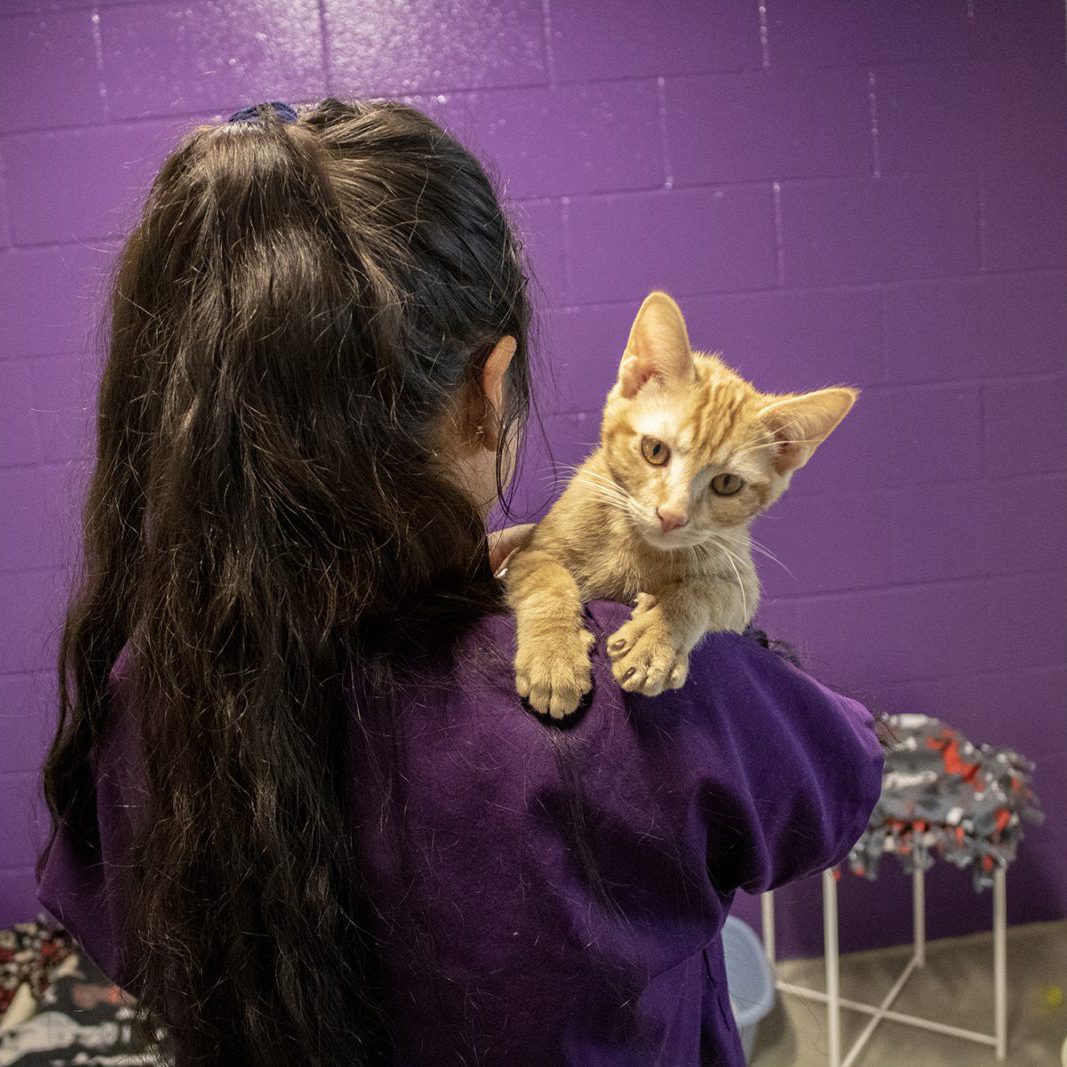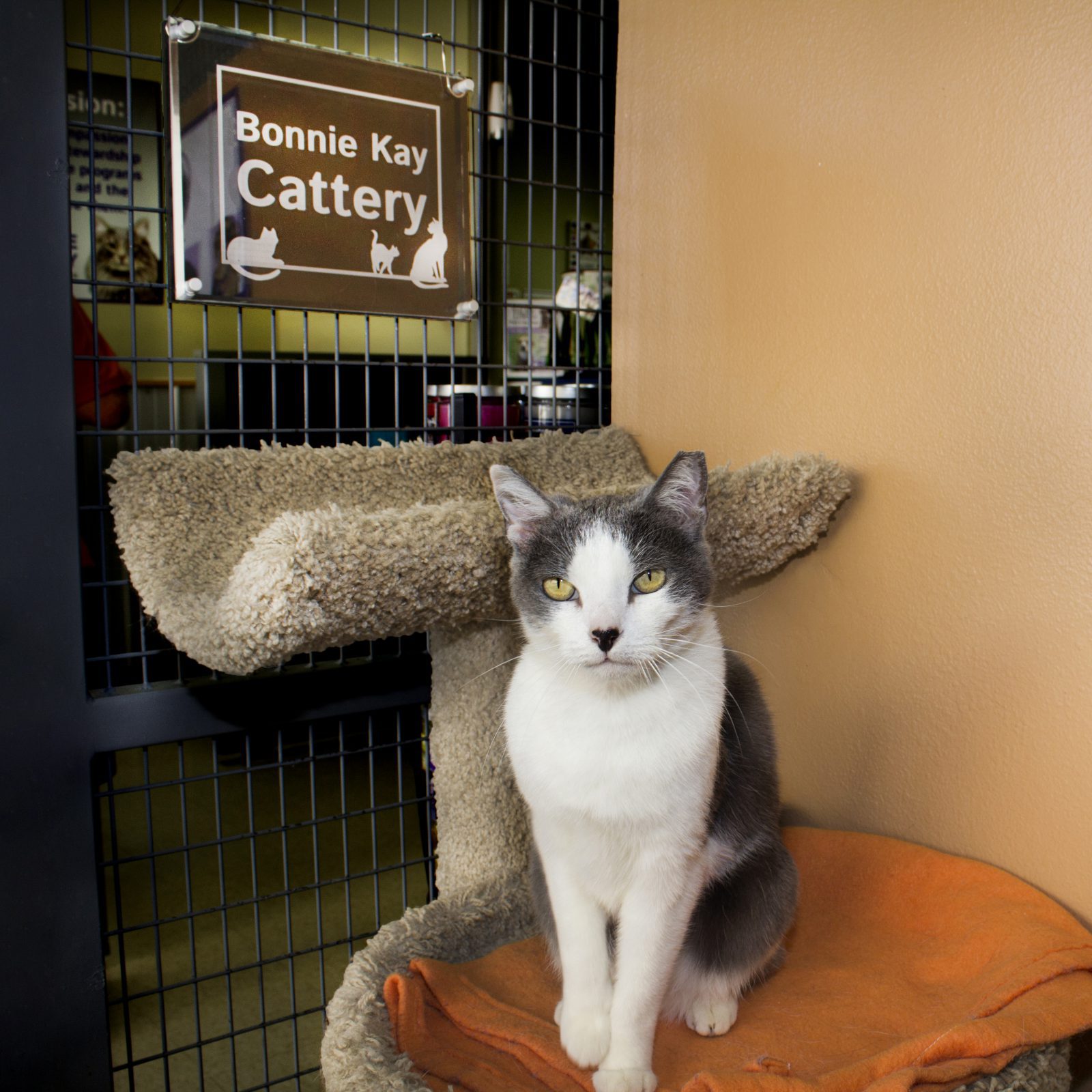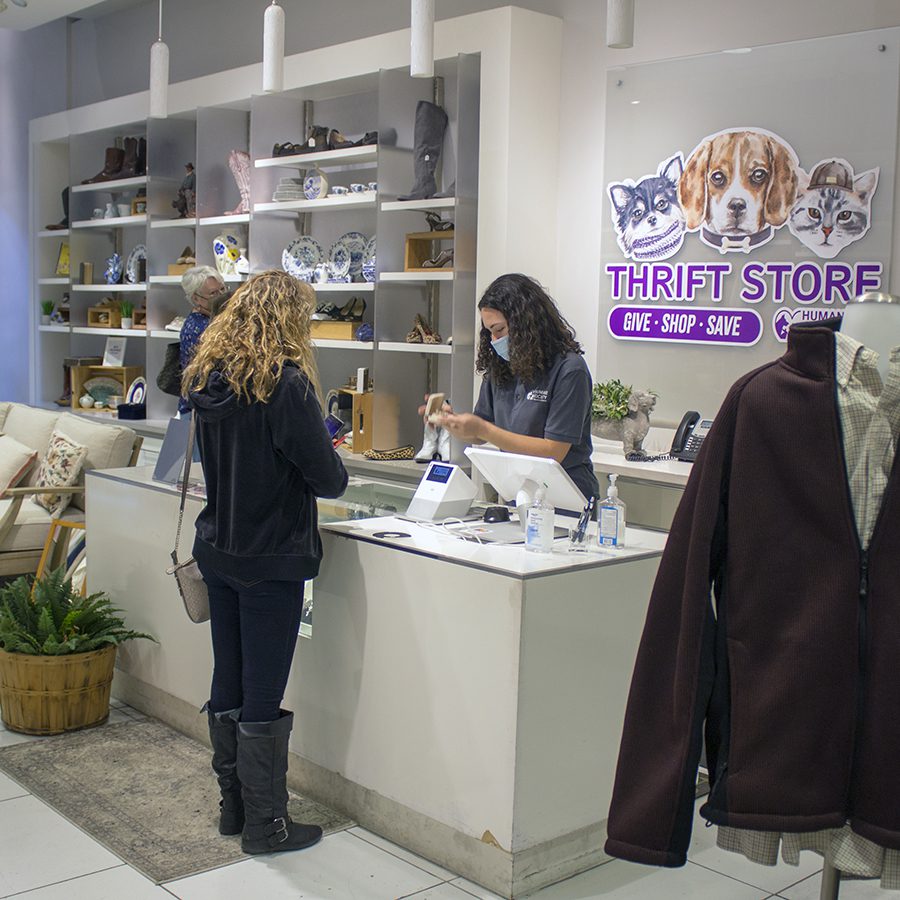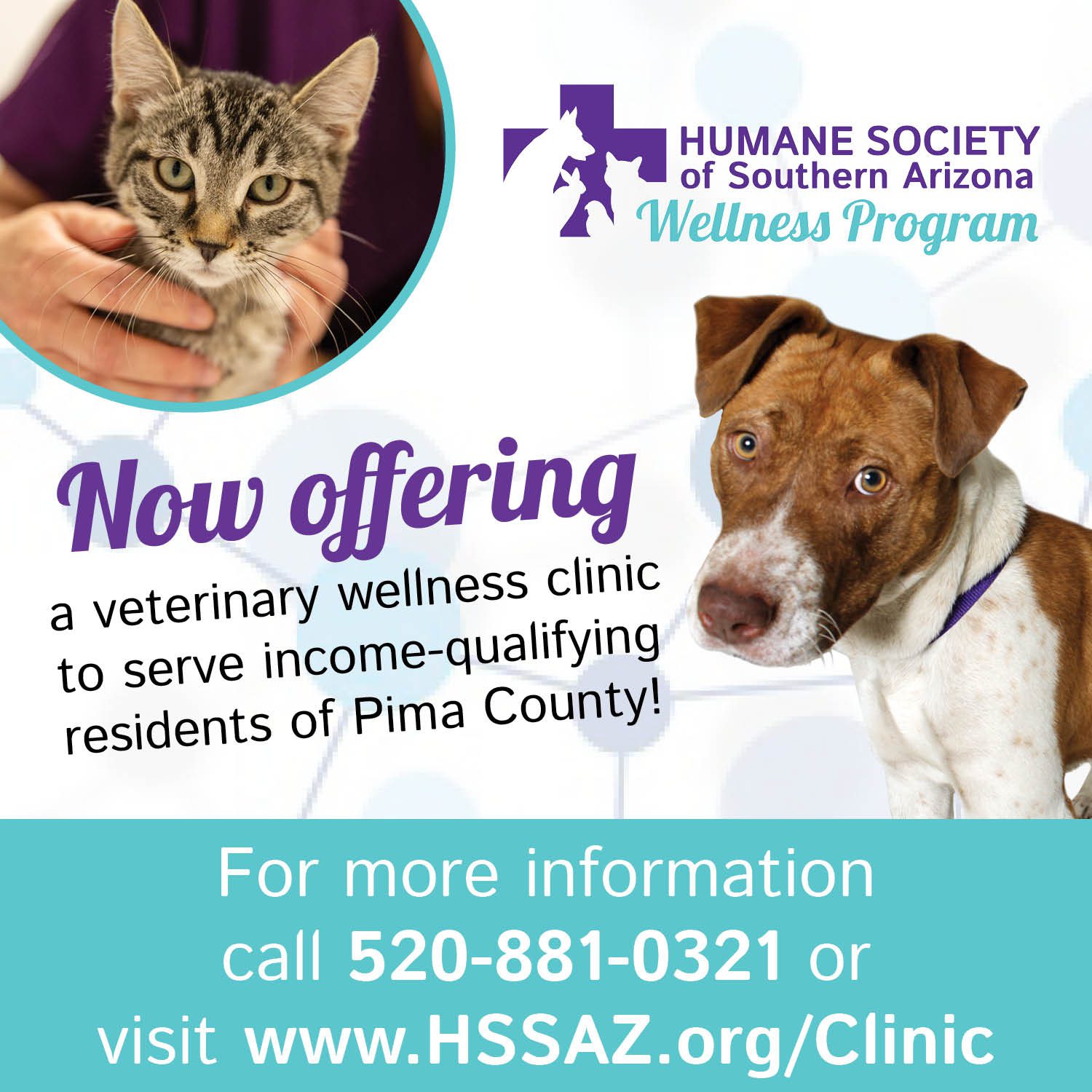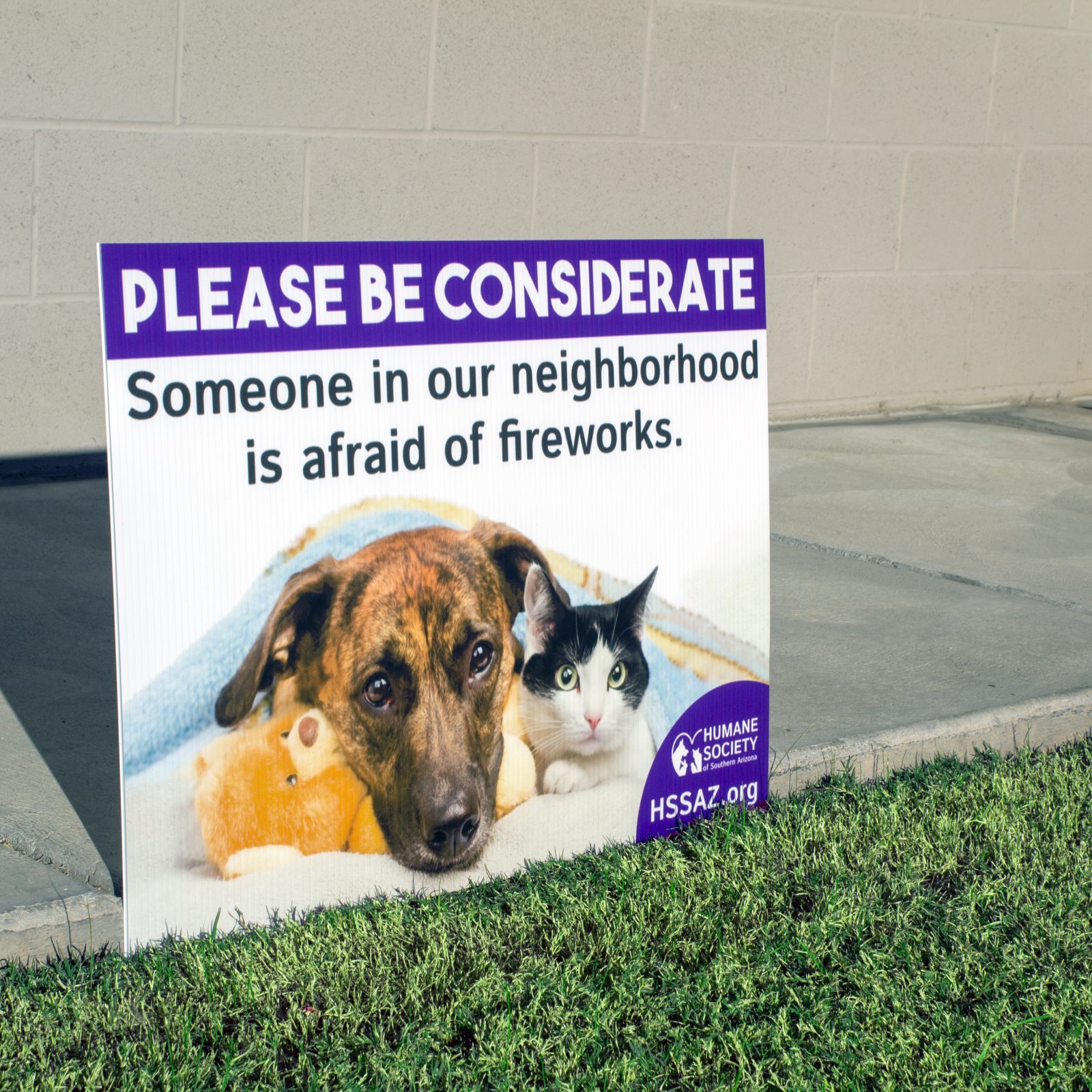Meet Ceesa
Monday, April 5th, 2021
Ceesa is a gentle and talkative senior kitty with no plans to slow down any time soon. Ceesa may have short hair right now, but she’ll eventually grow a full, long, and fluffy coat. She’s 8 year old and loves nothing more than having her head scratched. She’s playful, social, and loves attention. Ceesa is looking for a laid-back home where she can relax and receive lots of love.
Meet Ceesa at the Humane Society of Southern Arizona at 635 W Roger Rd or call (520) 327-6088 ext 173 for more information.
One Deadly Bite
Monday, April 5th, 2021
How far would you go to keep your pet safe? If you are reading this blog, the answer is undoubtedly, “Whatever it takes.” That’s why HSSA offers Rattlesnake Avoidance Training. Although we might not always see them, in our part of the country rattlesnakes are all around us. Dogs can tell when a rattlesnake is near through smell, but that often makes them curious, drawing them closer to danger. They have to be taught that snakes are bad news.
By setting aside an hour to attend the Humane Society of Southern Arizona’s Rattlesnake Avoidance Training, you will help your dog learn how to use all of their senses to stay safe from rattlesnakes. Most importantly, you will learn how your best friend will react when a rattlesnake is near in a safe, controlled environment. Knowing how to spot cues from your canine when danger is near will keep you safe as well, and potentially save both of your lives! If your dog is at least 6 months of age with proof of vaccinations the time to register is NOW.
Training is conducted by the professionals from Animal Experts, Inc. and A-dobe Dog Training.
Meet Gracie
Monday, March 29th, 2021
12 year old Gracie shouldn’t be in a shelter kennel. She came to HSSA when her owner passed away. She’s as sweet as can be and loves affection. She’ll give you a quiet little meow when she wants your attention, and would love nothing more than a nice home with some warm laps to rest in.
You can meet Gracie at HSSA Main Campus at 635 W. Roger Rd. or call (520) 327-6088 ext 173 for more information.
Rico!
Monday, March 29th, 2021
Ten years ago I began volunteering with the Humane Society of Southern Arizona. I was part of the Puttin’ on the Dog Committee that worked alongside staff to plan the annual fundraiser, I would have never dreamt this would lead to meeting a special pup named Rico who would change our lives forever. This tiny but mighty Chihuahua was spending all of his time in staff offices proving to be the perfect gentlemen while awaiting his forever home. I had taken his photo to hang in my office in hopes of finding Rico a new family, and one afternoon a staff member who had been caring for this little guy invited me in to spend some time with him. That was all it took — he jumped on my lap and I knew he was coming home to join our family. We already had Gracie, our 9 year old Chi, at home who had the opportunity to come and meet Rico at the shelter to assure they would get along. Rico especially enjoyed attending Humane Society events. We started out with Sweat for Pets, which quickly became his favorite, along with the dog wash at Barrio Brewing and even a chance to sit on Santa’s lap at La Encantada. Adopting Rico was a big decision for our family. However given the chance to build a relationship with an animal and watch them thrive is really irreplaceable. I am forever grateful to the Humane Society for taking him in during a time of need and working carefully to find him the perfect home where there would never be a shortage of warm fuzzy blankets, puppy treats, and unconditional love. We love your Mr. Reeks!
- Kris Slaney, Former HSSA Board Chair and HSSA Adopter
HSSA Finishes in 2nd Place in Annual March Muttness™ Virtual Fundraiser
Thursday, March 25th, 2021
The Humane Society of Southern Arizona (HSSA) is excited to share that March Muttness™ 2021 has raised over $206,000! March Muttness™ is a virtual fundraising tournament in which 32 shelters across the country compete with each other to raise the most funds to support homeless pets.
This year, HSSA came in 2nd place, losing the championship round to Ten Lives Club, a cat rescue and adoption group in New York.
Steve Farley, HSSA CEO says, "Congratulations to all 32 shelters who competed in March Muttness, and the generous donors who rooted them on with donations. Thanks to you, we raised more than $206,000 to help homeless pets across the country, and along the way we had tons of fun with classic rivalries, Cinderella stories, and dramatic buzzer-beaters. I can’t wait till next year!"
Thanks to March Muttness™ sponsor Pacifico, all 32 animal shelters across the county got to take home at least $500 in prize money.
HSSA would also like to thank Tito's Vodka for sponsoring the Sensational 16 round.
HSSA says they are thrilled to see how many wonderful donors across the country have come out to play for their local shelters. This movement will help countless animals in the year to come.
March Muttness™ was created to help shelters through this uncertain time in history. With your help pets will continue to be cared for no matter what. Thank you for participating and cheering us on!
Meet Sophie
Monday, March 22nd, 2021
Sophie is a gentle, adoring, sweetheart who can’t wait to meet you. She’s 4 years old and looking for a forever home where she can blossom into the confident, energetic dog we know she can be! Sophie would do best with a family where she can be the center of your attention. She is eager to make new friends and shake everyone’s hands. Sophie enjoys going for walks, belly rubs, and treats!
Meet her at HSSA Main Campus at 635 W. Roger Rd. or call (520) 327-6088 ext 173 for more information.
Meet Omid
Monday, March 15th, 2021
Omid is more than just his good looks. This sweet boy is full of love and just wants to snuggle! Omid is 12 years old and looking to retire and spend his golden years with a nice family who can give him lots of pets and love! This well behaved boy is super easy to please. Just give him a little attention and he'll be snuggled up in your lap purring in no time!
Meet Omid at HSSA Main Campus at 635 W. Roger Rd. or call (520) 327-6088 ext 173 for more information.
Trap, Neuter, Return
Tuesday, March 9th, 2021
TRAP NEUTER RETURN (TNR) is the humane trapping of feral cats to be spayed or neutered, vaccinated and medically treated by veterinarians. Once treatment is complete, adult feral cats are typically returned to their colony. If kittens are young enough, they can be placed into a foster or adoption program, decreasing the number of cats living on the streets.
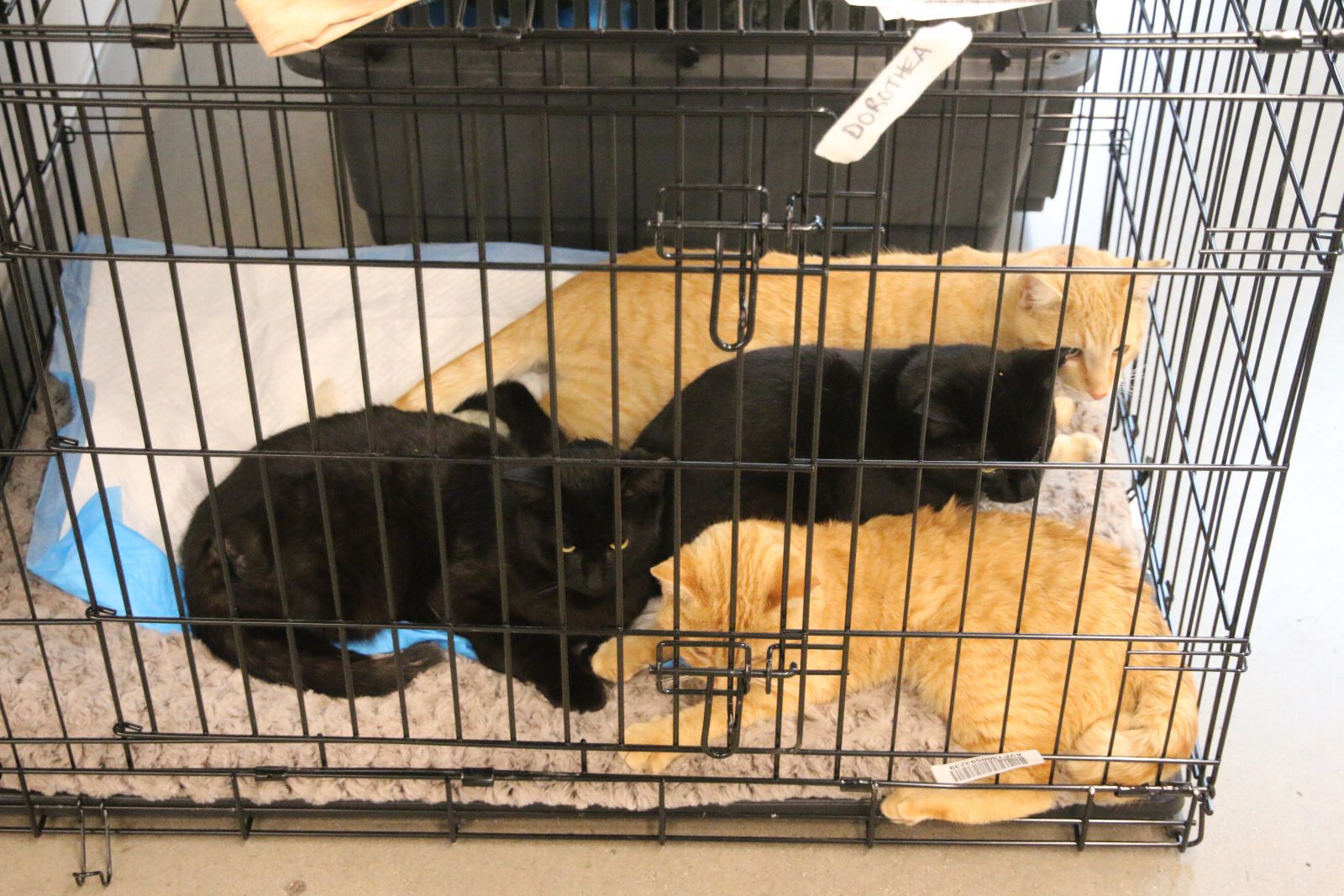
Research has shown that TNR helps to gradually reduce feral cat colony size over time and helps feral cats to live healthier lives. As a result, TNR helps feral cats be better neighbors to the humans and wildlife around them. Ensuring these cats are vaccinated helps community cats avoid diseases that are a public health concern, such as rabies.
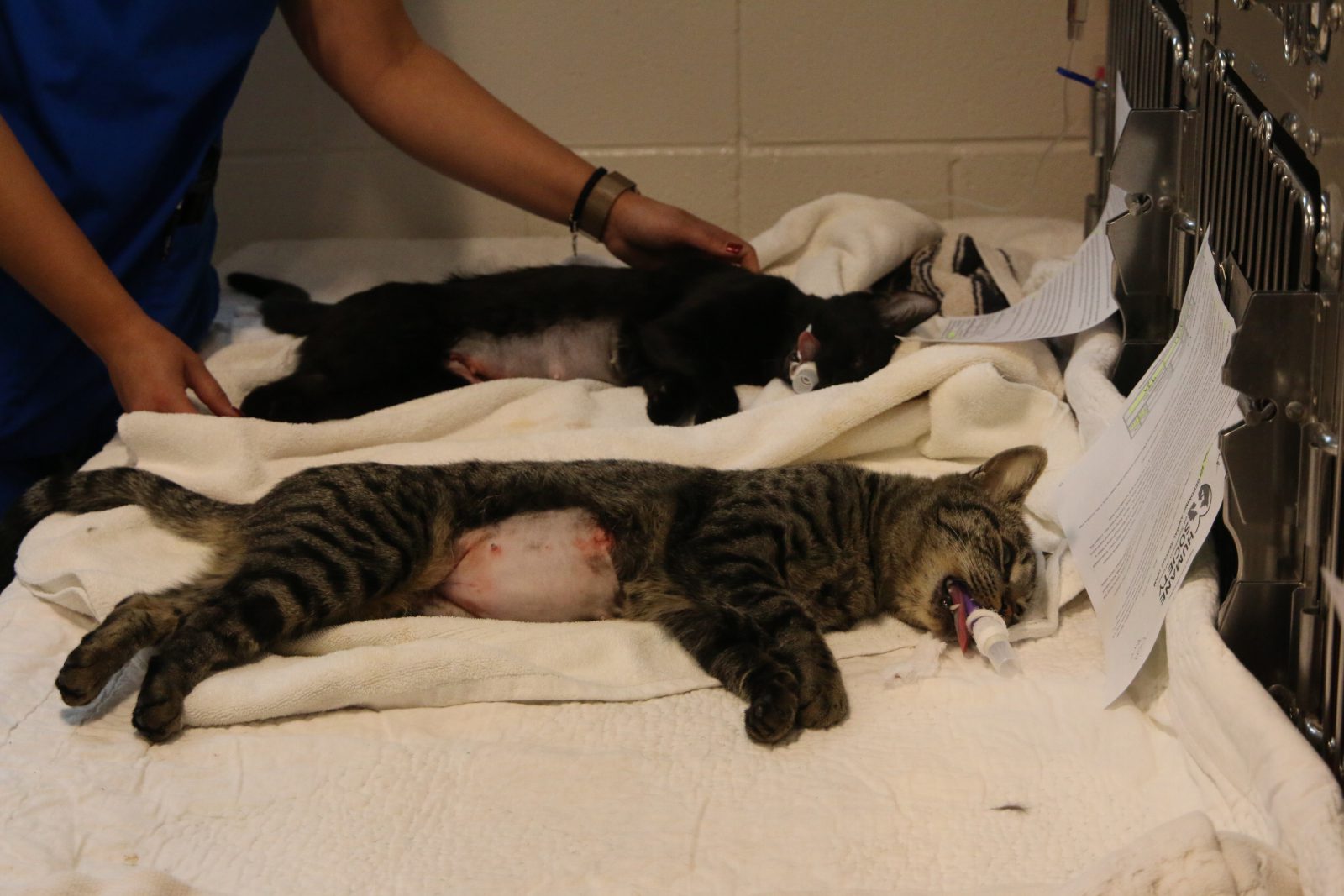
Bringing cats into HSSA’s TNR program takes a lot of patience and dedication. Clara Lee Arnold, HSSA’s first TNR Specialist and Community Cat Coordinator, works odd hours often over the weekend and late in the evening. Some days she finds herself hanging out by smelly garbage cans. Other days she crawls into places that leave her covered in dirt and grease.
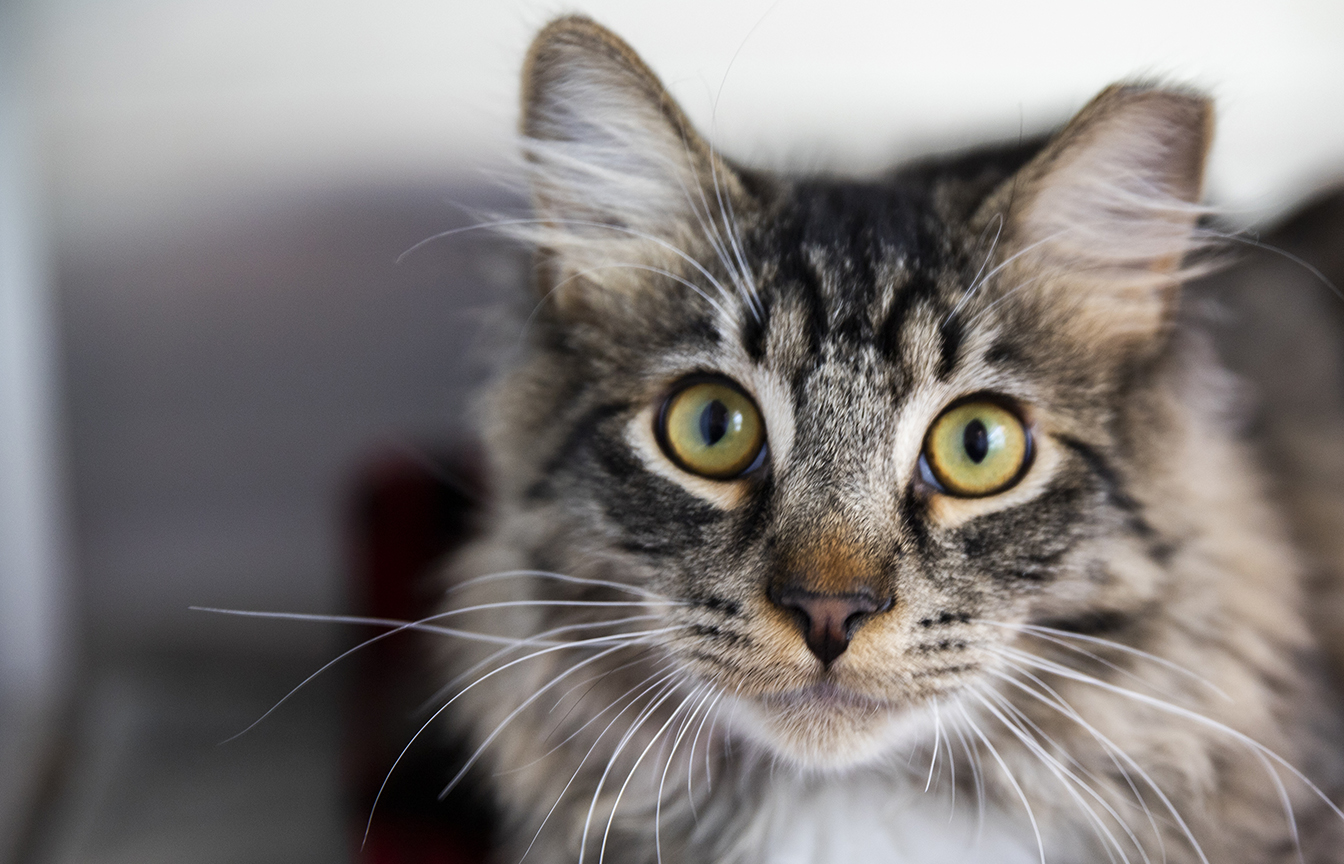
Clara Lee has been instrumental in helping HSSA perform outreach to underserved areas, helping folks in need of feral colony support. Her skill, knowledge and experience have been vital to the increase in numbers of feral cats the HSSA Clinic has been able to help.
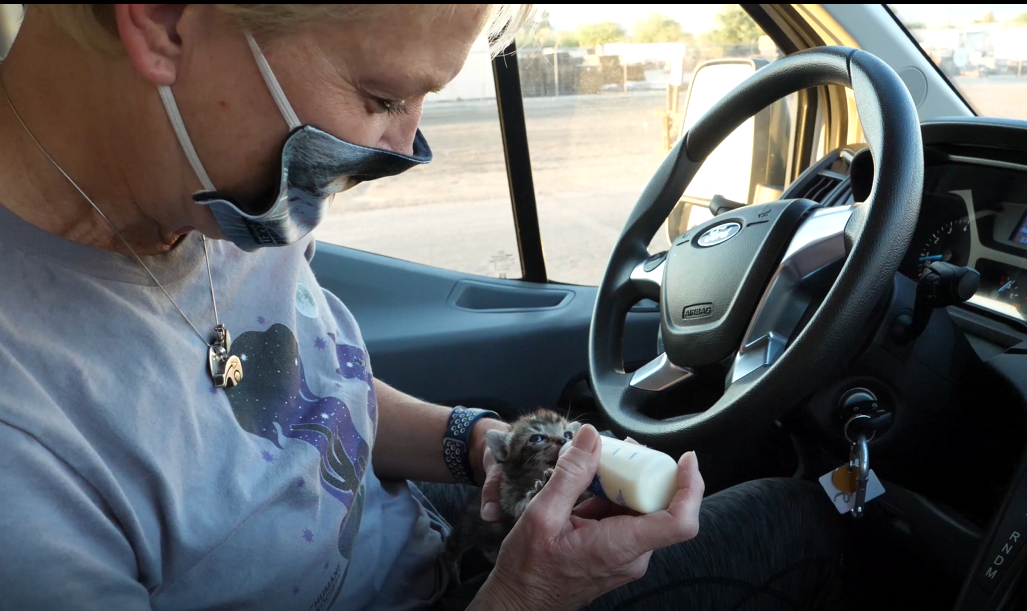
This success has led to the inauguration of a Community Cat Coalition and the creation of a Community Cat Center — with two full-time staff — later in 2021. This program is aiming to make sure no kittens are unwanted in Southern Arizona by 2025. To learn more about HSSA’s TNR program and to make a donation to help us continue this vital community work click here.
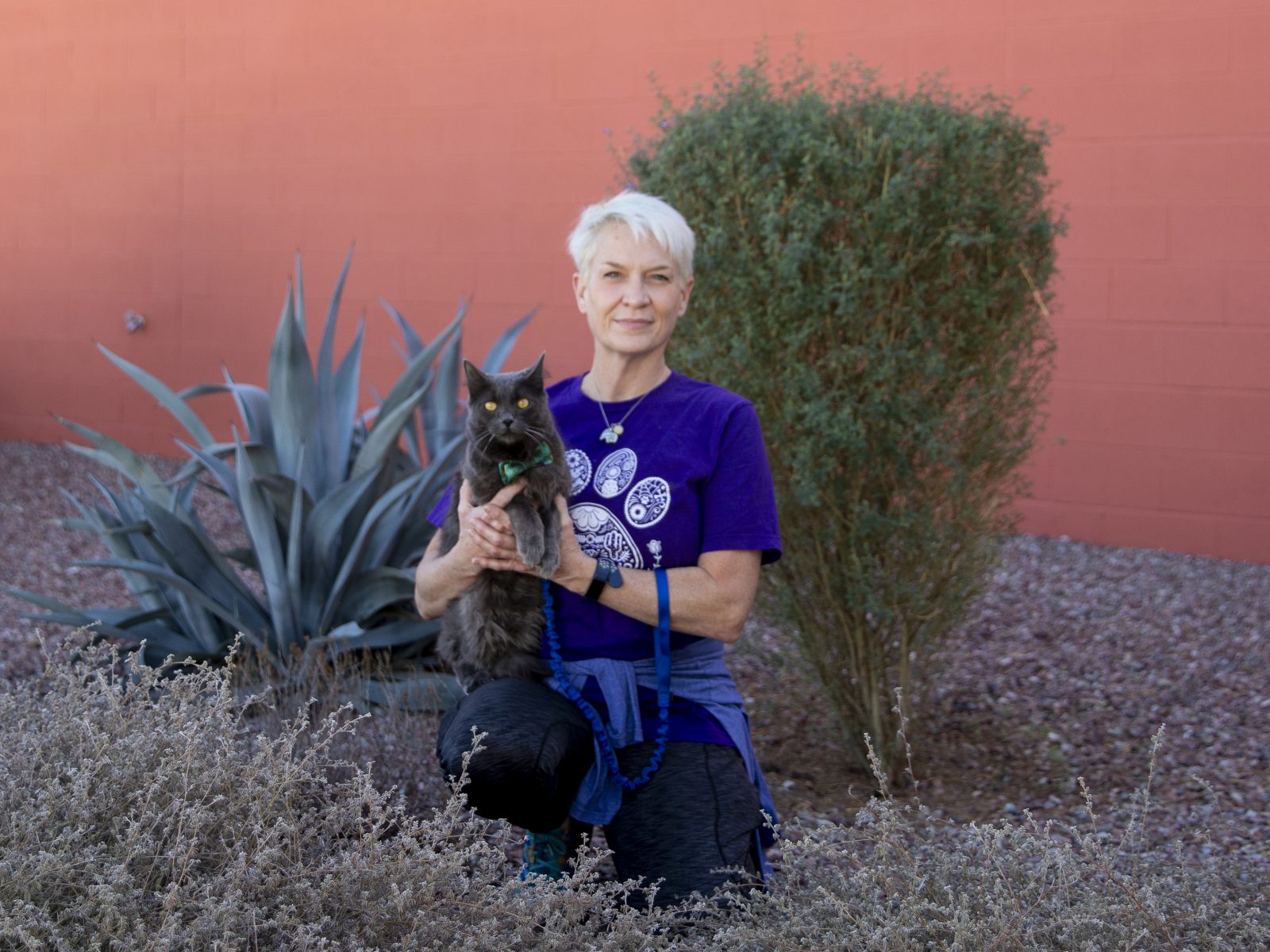
Meet Indigo
Monday, March 8th, 2021
Indigo is a handsome boy who knows how to please! He’s 5 years old and like so many huskies, he is very smart and loves to work. But this intelligent and high energy boy loves to snuggle too! Indigo is confident, friendly, and enjoys going on hikes!
Meet Indigo at HSSA Main Campus at 635 W. Roger Rd. or call (520) 327-6088 ext. 173 for more information.
Cover Dog 2021 is happening NOW
Monday, February 8th, 2021
Cover Dog is BACK! And this year it's gone virtual. Does your dog have a great personality and even cuter face? Enter Cover Dog 2021 to win a photoshoot by Tucson Lifestyle magazine and your precious pup could grace the cover of Tucson Lifestyle’s May issue!
Starting February 1st you can submit a photo of your adorable dog along with a short story about them. Then have your friends and family vote for them!
Enter for only $25 and that will get you 25 votes -- each additional vote is only $1, and every dollar supports HSSA, so encourage people to vote often. Check out our social media pages for tips on taking a good photo. The ten dogs with the most votes at 10pm on February 15th will go on to be judged by judges from Tucson Lifestyle Magazine and one lucky winner will make the cover!
Don’t delay - the first 200 entries will also receive a digital mock cover (delivered via email by April 1st, 2021). All proceeds from this event support the pets and programs of the Humane Society of Southern Arizona.
Submit your photo and story NOW at http://bit.ly/HSSACoverDog
Need some tips on how to get a great photo of your dog for the contest? Watch this video to learn how our photographer does it!
Shop HSSA's Thrift Store and Furniture Showroom 7 days a week at Park Place Mall.
Meet Bobby
Monday, February 2nd, 2021
Bobby is a 4 year old cat who was originally part of a feral colony. But Bobby was so friendly and sweet we just knew he had to find a home of his own. This boy is all about attention and affection. He’s sweet and sociable and loves to talk! He does well with other cats but we don’t know his history with dogs or children. Bobby is confident and and friendly and would make an excellent companion for anyone looking for a new furry friend! Meet Bobby at the Humane Society of Southern Arizona at 635 W Roger Rd or call (520) 327-6088 ext 173 for more information.
More ways to help pets
- Make a donation
- Shop HSSA Thrift Store
- Learn more about our PAWSH Park Place adoption center
- Humane Education programs
- Will your dog be Tucson Lifestyle Magazine's next Cover Dog? Submit your photo now through February 15th, 2021!
Meet Mumbles
Monday, January 25th, 2021
Meet Mumbles! This adorable little micro panther loves attention and showing off how cute he is. Mumbles loves to play wrestle, and also really enjoys being brushed. He has lived successfully with other cats before and would love to go home with a family where there is always someone around to play with him! Mumbles is 2 years old and can’t wait to be your new best friend.
Meet Mumbles at the Humane Society of Southern Arizona at 635 W Roger Rd or call (520) 327-6088 ext 173 for more information.
Visit our Bonnie Kay Cattery located at our PAWSH store at Park Place mall. New dogs, cats, kittens, puppies and pocket pets are transferred to this adoption location daily and can't wait to meet you!
Meet Allis
Tuesday, January 19th, 2021
Allis is an exuberant, young, 1 year old girl who is eager to be your best friend! If you’re looking for a pal who will always want to explore and play with you, Allis is your girl. Allis has played with other dogs here at HSSA, and would prefer doggie playmates who like to roughhouse the way she does. Allis is a sweet, snuggly, girl who knows basic obedience like “sit” and “down.” Meet her at the Humane Society of Southern Arizona at 635 W Roger Rd or call (520) 327-6088 ext 173 for more information.
Meet Icy
Monday, January 11th, 2021
Don’t let Icy’s name fool you, his personality is anything but cold! Icy is a warm, gentle, and loving boy who would love to be a part of your family. He’s 3 years old and has lived successfully with kids and cats before. Icy loves meeting new people and loves scratches on his chin. He’s a vocal cat who wants to impress you with his adorable sounding chirps, meows, and purrs. Meet Icy by making an appointment at the Humane Society of Southern Arizona by calling (520) 327-6088 ext 173.
Local Artist and Humane Society Honor Beloved Rescue Dog
Tuesday, January 5th, 2021
Lulu spent over 8 months at the Humane Society of Southern Arizona (HSSA), working with dedicated staff and volunteers to keep her happy and healthy while she waited for a forever home. After exactly 245 days, her perfect family walked in the door and walked Lulu out of the shelter into her new, happy life.
Lulu recently returned to HSSA with her adopters, who added Lulu to their family on February 23rd 2020, to attend the unveiling of "Lulu's Yard", a new exercise yard on HSSA's Roger Road Campus. Steve Farley, HSSA CEO, stated, "We are so grateful to the generous anonymous donors who decided to honor volunteer-favorite Lulu, and the volunteers who helped her, with a beautiful new exercise yard for our shelter dogs to romp and play while they await their forever homes."
The new yard will be used by dog-walking volunteers for behavior socialization and much needed exercise. While dogs at HSSA get walked every day, this yard offers them an opportunity to run around safely off-leash.
Hannah Carl, HSSA Public Relations Coordinator, added, "Having this extra space will be an invaluable tool for our dog behavior and enrichment programs, and the fact that it honors one of HSSA's longest and most beloved residents makes it that much more special."
HSSA finds loving homes for thousands of pets each year. The average time a dog or cat has to wait to be adopted is 17 days. There are still too many dogs and cats like Lulu who have to wait much longer, and the public is invited to open their hearts and homes to a special dog or cat like Lulu who has been waiting for a loving family. Find your new best friend today at HSSAZ.org/adopt.
Lulu's Yard features a metal sculpture entry-way designed by local welding artist Todd Rose of Rose Metal Works. The artwork was commissioned by the Lulu's Yard anonymous donor. If you would like to contribute to help HSSA save the lives of pets, you can visit HSSAZ.org/donate.
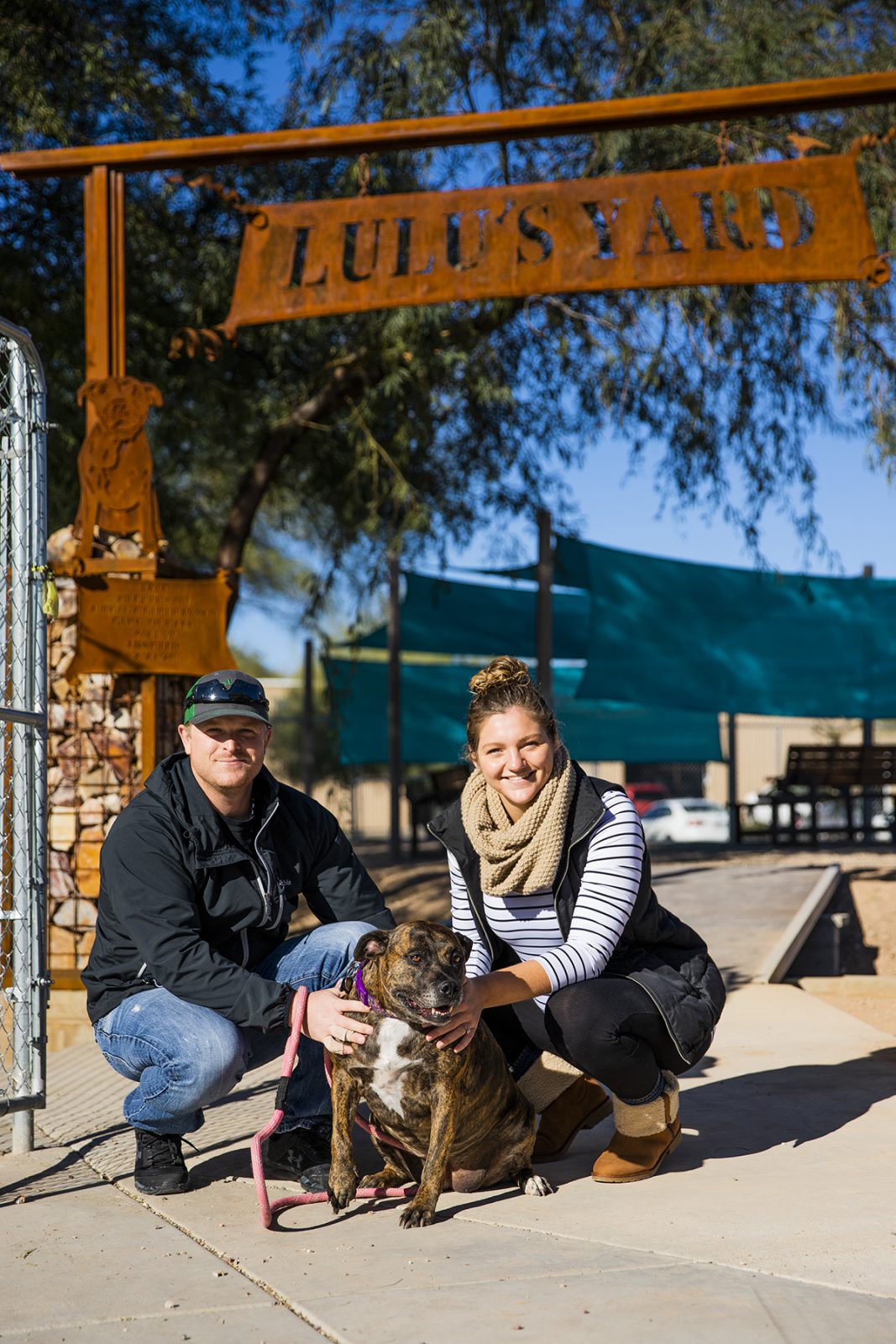
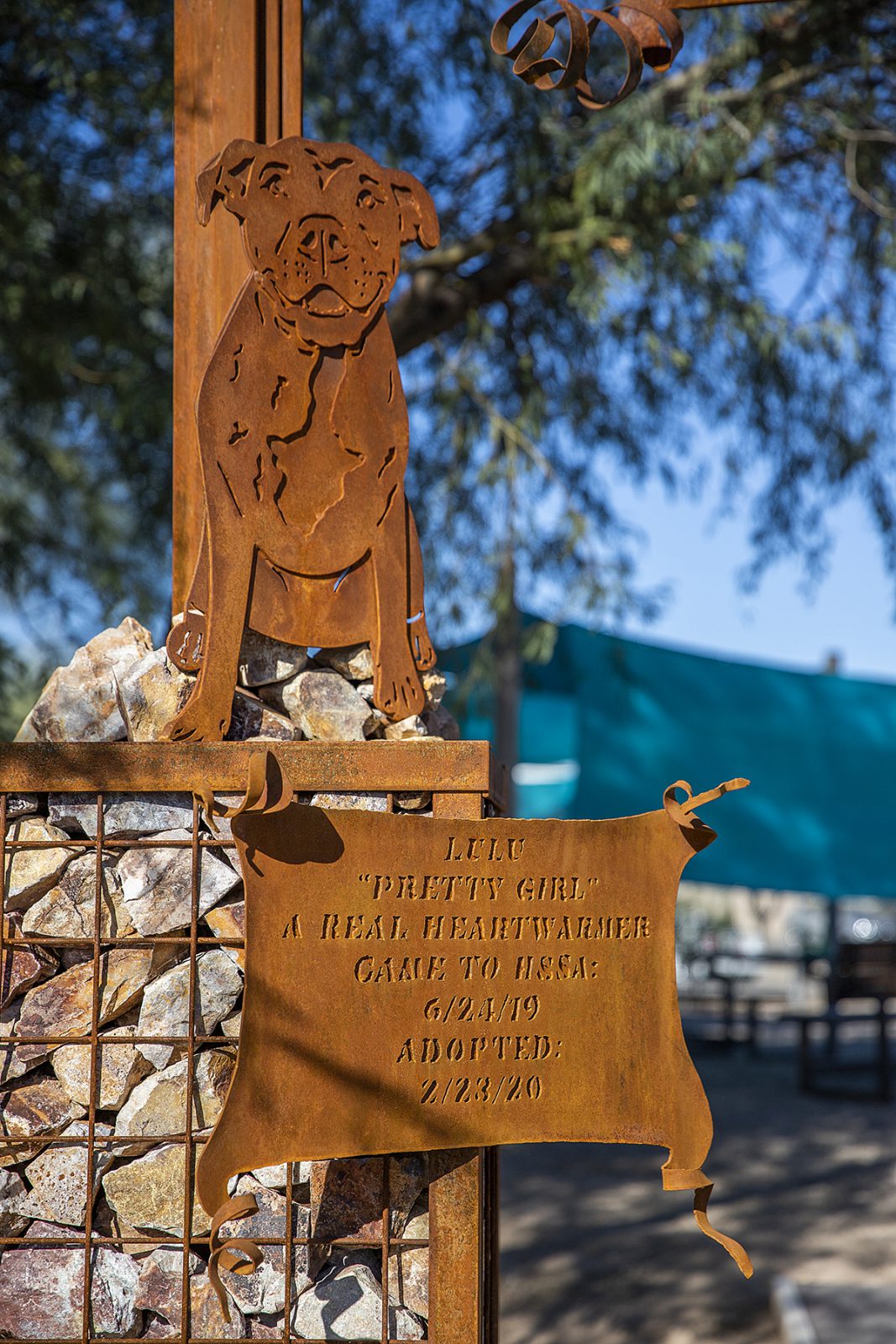
Meet Talulah
Tuesday, January 5th, 2021
6 month old Talulah is an absolute delight! This gorgeous freckled girl loves to do zoomies in the yard, and is awesome at keeping herself entertained. Talulah loves squeaky toys, and adores every new person she meets. She’s a total lovebug who just wants to play and play all day long! Talulah would love to live with other dogs that are similar in size as her, and she has lived successfully with cats in the past. Make an appointment to meet Talulah at the Humane Society of Southern Arizona by calling (520) 327-6088 ext 173.
Meet King
Tuesday, December 29th, 2020
If you’re looking for a big dog that just wants to lounge around with you, come meet King! King is sweet and laid back and very obedient! He is always working to be on his best behavior and loves going for walks! He does great on a leash and will sit for treats and toys. King loves to go on outings outside of the shelter with his volunteer friends, and loves meeting new people out in public! King is 7 years old and ready to win you over with his adoring smile.
You can meet King by making an appointment at the Humane Society of Southern Arizona by calling (520) 327-6088 ext 173.
Meet Waffles
Tuesday, December 15th, 2020
Waffles is an 8 year old long haired cat with oven mitts for paws. If you like quirky cats, you’ll love Waffles. And this sweet guy knows just how special he is. He loves to show off his big paws in exchange for head scratches. He enjoys receiving attention, but his favorite thing is curling up in a nice warm spot for a nap.
You can meet Waffles by making an appointment at the Humane Society of Southern Arizona by calling (520) 327-6088 ext 173.


